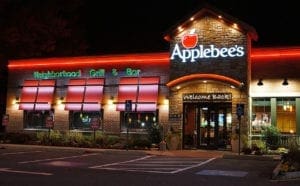Former Inmates Could Benefit from Free Markets Too
This article was featured in our weekly newsletter, the Liberator Online. To receive it in your inbox, sign up here.
For too many former convicts, life after prison is hard. Oftentimes, quite impossible. That’s why most of those who are given a second chance end up going back to jail.
But to this 35-year-old, his second chance came in the form of a local restaurant manager who was not scared of government’s formal tagging of felons.
 After his release in 2011, Marcellus Benbow was struggling to find a job. He told reporters that, at the time, he was doing odd jobs, hoping to avoid going back to a life of crime while looking for a full-time opportunity. As he struggled to find a steady occupation in order to gain custody of his two oldest daughters, he also found no sympathy from potential employers.
After his release in 2011, Marcellus Benbow was struggling to find a job. He told reporters that, at the time, he was doing odd jobs, hoping to avoid going back to a life of crime while looking for a full-time opportunity. As he struggled to find a steady occupation in order to gain custody of his two oldest daughters, he also found no sympathy from potential employers.
That all changed when he answered an ad on Craigslist.
As soon as he met with the general manager at Apple-Metro, the New York franchisee of Applebee’s, both men hit off. That was it. Benbow had finally scored full-time employment with the company as a broiler cook.
“Applebee’s saved my life,” he said.
Now, Benbow is an assistant kitchen manager at Applebee’s Fordham Road location in the Bronx. He could soon be getting a promotion, taking the role of kitchen manager. He was lucky that his current employer was not afraid of his past, but many in his position aren’t as lucky.
In America, felons are required to disclose whether they have spent time in jail. But even if they don’t disclose this information, background checks help potential employers learn more. In many cases, non-violent felons are seen as a threat by employers who prefer to hire someone else, spurring a wave of discrimination suits against business owners.
The result is quite concerning.
The estimated unemployment rates among ex-prisoners are between 25 and 40 percent, despite the federal incentives some get by hiring felons. But laws that have helped to create so many non-violent criminals are still in effect. Instead of urging Congress to review some of these laws, namely the drug war and other pieces of legislation such as the Violence Against Women Act, many advocates for equal employment opportunities blame companies alone for their refusal to hire felons.
Recently, the often feared tycoons known as the Koch brothers announced they would stop asking potential employees about their criminal record. According to Koch Industries’ general counsel, Mark Holden, and Charles Koch, the decision came about after leadership noticed that overcriminalization had been affecting “us all but most profoundly harms our disadvantaged citizens.”
At the time of the announcement, both men penned an op-ed that asked the question: “If ex-offenders can’t get a job, education or housing, how can we possibly expect them to have a productive life?”
Instead of forcing employers to change, advocates could see a real change in the country’s employment environment by just pushing Washington to focus on real criminal justice reform.

























